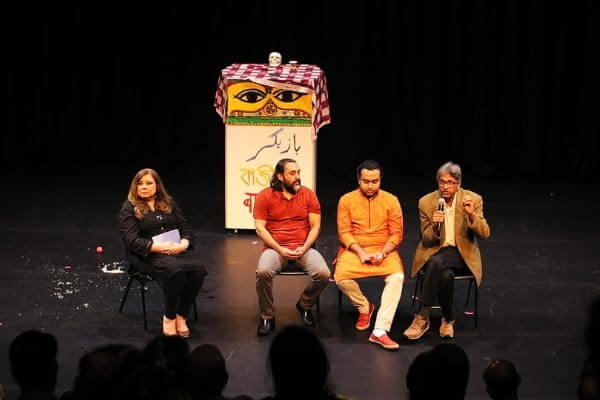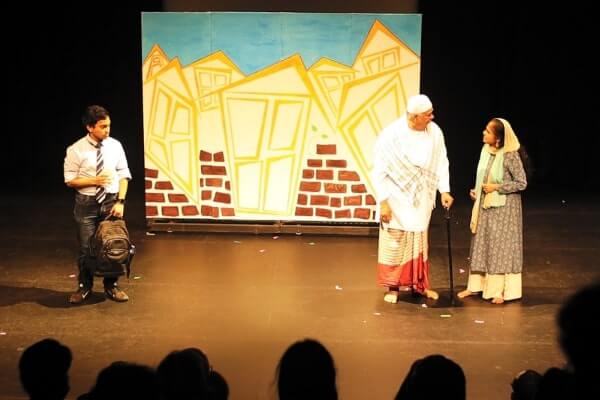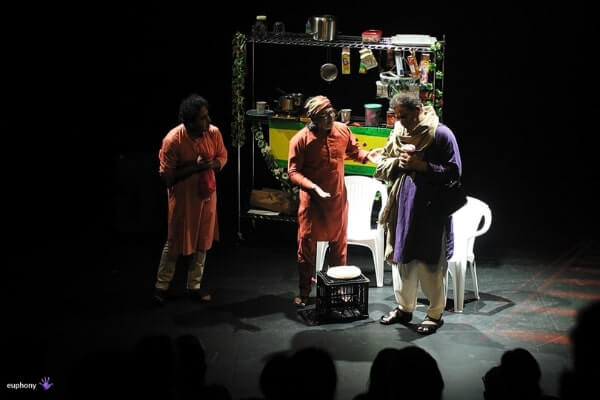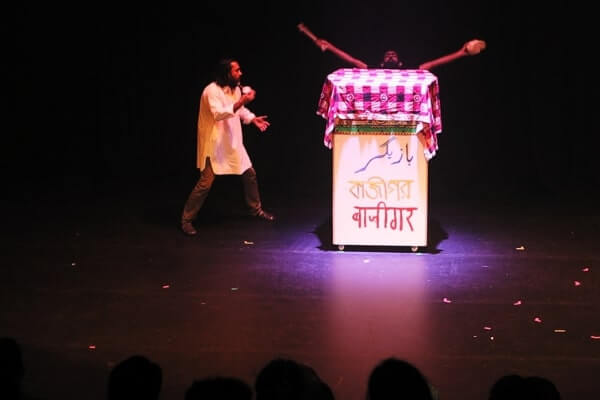Are we a tolerant society? It has been seventy-five years since partition and after declaring ourselves a secular state. Do we mingle with all religions equally? Do we treat everyone as an equal? These were the questions raised by the organisers of the sixth Nautanki Theatre Festival 2021. Sadly enough, the answer as depicted was a NO.
The festival took place at Lennox Theatre, Riverside, Parramatta, on 16 and 17 December. Three plays were presented on the occasion – Nanna Thundu Aakasha in Kannada/Hindi/English (produced by Anivasi Arts Collective), Man Batwara in Urdu/Panjabi (produced by Kalakar Theatre) and Baazigar in Hindi and Bengali (produced by Nautanki Theatre).
Interestingly, these plays were commissioned by the festival under the theme Partition and Diaspora. The plays explored different facets of this theme very effectively.
The first play, Nanna Thundu Aakasha, directed by Sudarshan Narayana, brought out that the entire cross section of the society including ordinary people, the intellectuals who give brilliant talks and discourses on secularism hide away when it is time to practise it. The scene is utterly simple and familiar. A Muslim IT employee from Kashmir lands in Bengaluru. None is prepared to rent him a house or an apartment. For that matter, even the local Muslim Landlord is scared of renting him his place. It is as if we have created many more societal divisions to add to the exisiting ones. The play proved its point in a simple setting and good acting by Sajid ibne Anower, Mohendra Singh, Shan Singh, Sudarshan Narayana and Veena Sudarshan. The play concluded with a vachana from the 12th century reformer, Basavanna – Let them not say who is this fellow? Who is this fellow? Get them to please say: he is one of us, he is our own. Are we dreaming?
Mann Batwara, directed by Mussawar Chughtal, is set in a tea shop in a train station in Pakistan. It is a story of how the partition breaks a person’s dream and love. An old man walks up to the shop and meets the owner and his assistant. Their conversation reveals that the old man has many things in common with the others. In a compelling flashback, he tells of his love and the girl he lost due to partition. The acting by Farjad Mehmood as the old man was the highlight of the play. I cannot follow the Hindi language in full. However, I could follow what he meant easily. That is what good acting is! His words, “This is not my pain or your pain but is the pain felt by everyone”, still ring in me.
Baazigar, directed by Neel Banerjee focuses on the new wave of fascist trends that prevails in some parts of India today. A trickster on the street earns his livelihood by entertaining people. A group of people challenge him and force him to reveal his religion. He and his assistant are attacked. This play showed a graphic picture of violence that is committed in India under the pretext of safeguarding our values. I felt that some of the incidents acted out were too explicit. Was it necessary to show all that on the stage? However, the ordinary man thinks that “the show must go on” and resists the violent attacks by the fascists.







